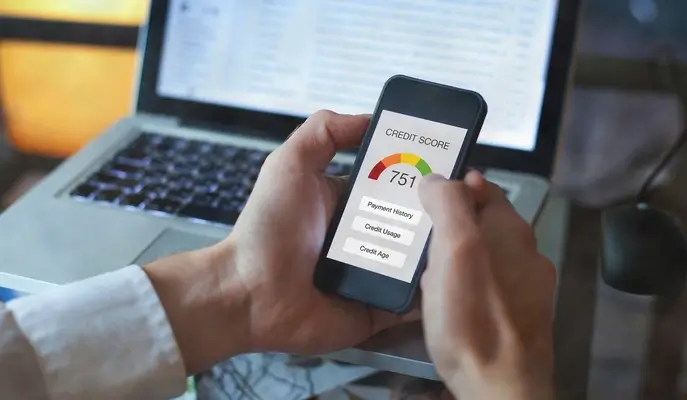If you’re a veteran or active-duty service member researching home financing options, you’ve likely encountered the question: “What is the minimum credit score needed for a VA loan?” Understanding how credit scores fit into VA loan requirements is crucial.
The U.S. Department of Veterans Affairs (VA) does not set a formal minimum credit score for VA loans.
However, most private lenders typically require a score of at least 620. Some lenders may accept lower scores, but higher scores can boost your approval chances and secure better interest rates.
This comprehensive guide breaks down the official guidelines, how lenders interpret them, and the steps you can take to improve your odds of approval.
Understanding VA Loans
VA loans are mortgage options backed by the Department of Veterans Affairs, aiming to help eligible veterans, active-duty service members, and certain surviving spouses secure home financing. The VA doesn’t originate these loans directly.
Instead, private lenders issue them under guidelines established by the VA, including features like no down payment, no private mortgage insurance (PMI), and flexible credit requirements.
Because the VA guarantees a portion of each loan, lenders often have more confidence in lending to qualified borrowers. This guarantee typically leads to more favorable terms than you’d find with conventional mortgages. Before applying, it’s helpful to know that credit scores, while not exclusively mandated by the VA, are still an important factor in a lender’s evaluation process.
The Official Credit Score Guidelines
Contrary to popular belief, the VA itself does not impose a strict minimum credit score requirement for borrowers. Instead, it leaves the final credit requirements to individual lenders. This structure allows financial institutions to set their own “lender overlays,” which are additional conditions placed on VA standards, including a minimum credit score threshold.
In most cases, you’ll find lenders requiring at least a 620 FICO score to approve a VA loan application. However, some may allow lower scores—sometimes as low as 580—especially if you have compensating factors like a stable income or low debt-to-income ratio. Because requirements can vary, it pays to shop around different lenders to find the most forgiving credit policies.
| Credit Score Range | Lender Overlay (Typical) | Approval Odds |
|---|---|---|
| 580 – 619 | Some lenders will work with this range, but expect stricter underwriting | Moderate if compensating factors are strong |
| 620 – 659 | Common minimum cutoff for most VA lenders | Good chance of approval |
| 660 or Higher | Often qualifies for the most competitive rates | High approval probability |
Why Credit Scores Matter
Even though the VA doesn’t set a minimum credit score, your score can still influence your loan terms and approval process. Credit scores act as a snapshot of your financial history, measuring how responsibly you handle borrowed money. Higher scores generally indicate lower risk, which can lead to:
- Lower interest rates
- Easier underwriting approvals
- Potentially reduced funding fees
- More flexibility in terms
Conversely, lower credit scores may mean stricter underwriting requirements. Lenders might request more documentation or impose conditions such as a higher interest rate. In extreme cases, a low score could lead to a denial, though VA loans are typically more forgiving than many conventional loans.
Factors That Affect Your Credit Score
To improve or maintain a good credit score, understanding what influences it is half the battle. FICO scores are calculated based on the following core elements:
- Payment History (35%): Paying your bills on time is essential.
- Credit Utilization (30%): Keep debt levels low relative to your credit limits.
- Length of Credit History (15%): A longer credit history shows consistency.
- Credit Mix (10%): Having a variety of credit accounts (credit cards, loans) can help.
- New Credit Inquiries (10%): Multiple credit checks in a short period can lower your score.
Since VA loans often require a credit score of at least 620 with most lenders, focusing on these five components can make a tangible difference in boosting your rating. Paying off credit card balances, avoiding new credit applications, and resolving any outstanding collections can all be part of an effective pre-approval strategy.
Improving Your Credit Score Before Applying
If your credit score currently falls below your desired threshold, don’t let that discourage you. You can take proactive steps to elevate your score. While improvement doesn’t happen overnight, consistent positive actions pay off:
- Review Your Credit Reports: Check for errors or outdated information. Dispute any inaccuracies.
- Pay Bills Promptly: Avoid late or missed payments, as these severely impact your score.
- Reduce Credit Card Balances: Aim to keep your utilization ratio below 30%.
- Refrain From Opening New Accounts: Each new inquiry can temporarily lower your score.
- Seek Professional Guidance: Credit counseling agencies or financial advisors can outline a tailored plan.
Giving yourself at least three to six months to improve your score can make a marked difference when you finally apply for a VA loan. This extra time also provides a buffer if unexpected expenses pop up.
Step-by-Step Guide to Getting a VA Loan
Acquiring a VA loan can be straightforward if you follow a clear roadmap. Below is a simplified step-by-step process, beginning with confirming your eligibility and ending with closing on your dream home. Each phase is crucial, so taking the time to do it right can save hassles later on.
| Step | Description |
|---|---|
| 1. Determine Eligibility | Verify that you meet service requirements. Request your Certificate of Eligibility (COE) from the VA. |
| 2. Check Your Credit | Review your credit score and address any potential issues before contacting lenders. |
| 3. Get Pre-Approved | Apply with multiple lenders to see who offers the best rates and terms for your credit profile. |
| 4. Find a Home | Work with a real estate agent experienced in VA transactions to locate suitable properties. |
| 5. Make an Offer | Submit a competitive offer and negotiate closing costs with the seller. |
| 6. VA Appraisal | The VA requires a property appraisal to ensure it meets minimum property standards. |
| 7. Closing | Sign final documents, pay any closing fees, and move into your new home. |
Common Obstacles When Applying and How to Overcome Them
Despite the flexibility of VA loans, some borrowers still encounter stumbling blocks. Many revolve around credit score issues, debt-to-income ratios, or property-related hurdles. If your credit score is slightly below the lender’s minimum, demonstrating consistent employment, larger savings, or a history of on-time rent payments may bolster your application.
It’s also essential to know that some homes may not pass a VA appraisal if they have significant safety or structural problems. Planning ahead and staying transparent with your lender throughout the process can prevent surprises and expedite approvals.
Frequently Asked Questions
1. Can I get a VA loan with a 580 credit score?
Yes, it’s possible, but it depends on the lender. While many lenders set a 620 minimum, some are willing to approve applications with scores as low as 580, provided there are strong compensating factors. A stable employment history, low debt-to-income ratio, or substantial savings can help offset a lower credit score during the underwriting process.
2. Do VA loans require a down payment if my credit score is low?
VA loans typically do not require any down payment, regardless of credit score. However, some lenders may suggest or require a down payment if your credit score falls below their comfort level. While not mandated by the VA, this extra payment can help reduce risk and potentially make your loan application more attractive.
3. How long does it take to improve my credit score for a VA loan?
The time frame varies based on your credit profile. Generally, noticeable improvements can appear in three to six months if you diligently address late payments, high balances, and outstanding debts. Correcting errors on your credit reports also speeds up improvement. Consistency is key, so adopting healthy credit habits will yield the best long-term results.
4. Does a low credit score affect my VA funding fee?
The VA funding fee is primarily determined by your down payment, military category, and whether it’s your first or subsequent use of the benefit. Credit score does not directly alter the funding fee. However, higher-risk borrowers might face stricter underwriting requirements. Increasing your down payment can reduce the funding fee, helping offset credit-related challenges.
5. Can disabled veterans bypass credit score requirements?
Disabled veterans still undergo the same credit checks as other VA loan applicants, but they often receive additional benefits like waived funding fees. The VA doesn’t enforce a minimum credit score, though lenders may. Some lenders are more lenient for disabled veterans, considering the overall risk profile, continuous income streams, and other factors to mitigate credit score concerns.
6. How many times can I use a VA loan benefit?
You can use your VA home loan benefit multiple times, provided you restore or have remaining entitlement. After paying off an existing VA loan or selling the property, you can request entitlement restoration. Whether you can reuse it immediately or need to wait depends on your current status, eligibility, and the specific terms set forth by the VA.
7. Can I refinance a VA loan if my credit score has improved?
Absolutely. If your credit score has improved, you may qualify for a VA Interest Rate Reduction Refinance Loan (IRRRL). This streamlined option helps lower your monthly payment or change your loan terms without the hassle of an extensive appraisal or tight underwriting. A better score often translates to more favorable rates and substantial savings over the life of your mortgage.
The Bottom Line
While the VA itself sets no minimum credit score requirement, most lenders enforce one—commonly around 620—to balance their risk. A lower score may not automatically disqualify you, especially if you have significant compensating factors like a strong employment record or additional savings.
The best approach is to know where your score stands, make consistent improvements where needed, and compare offers from multiple lenders to find the best fit.
Whether you’re on active duty, a veteran, or a qualifying spouse, the VA loan program remains one of the most valuable resources for achieving homeownership. By understanding how credit requirements work and preparing ahead of time, you can maximize your chances of securing the home—and the loan terms—you deserve.
















